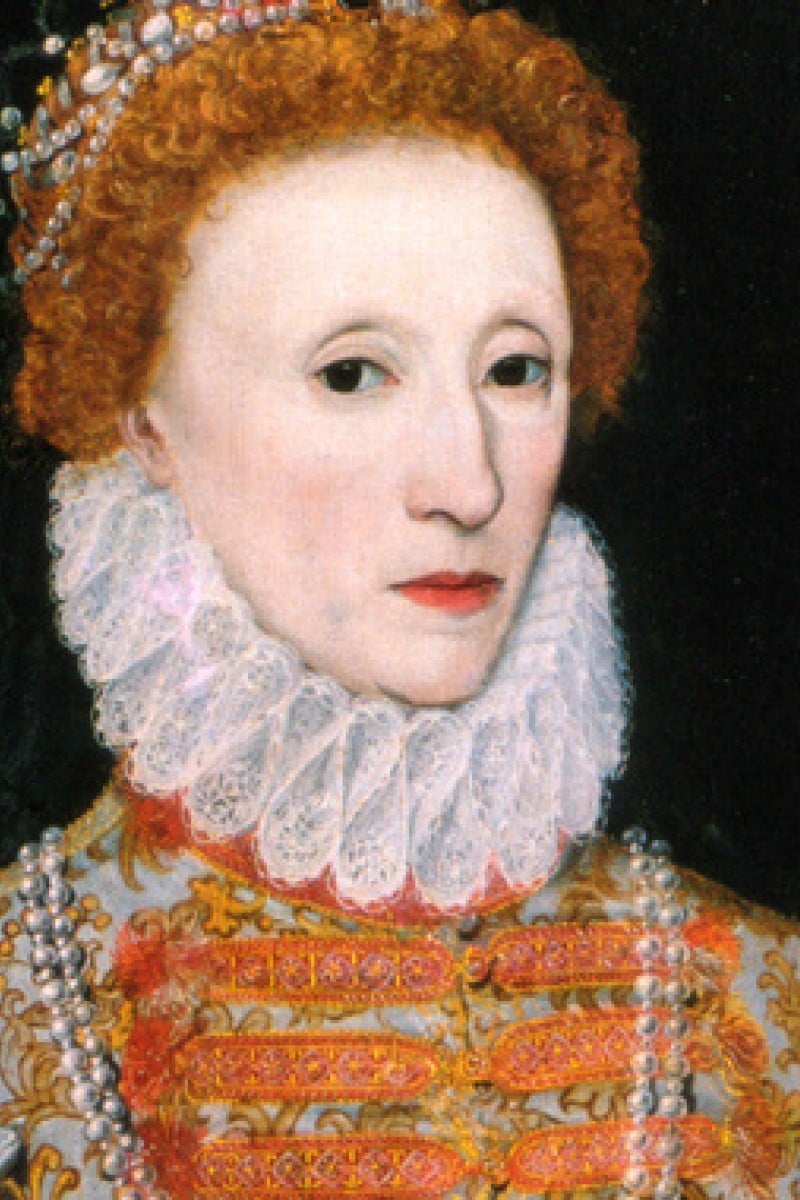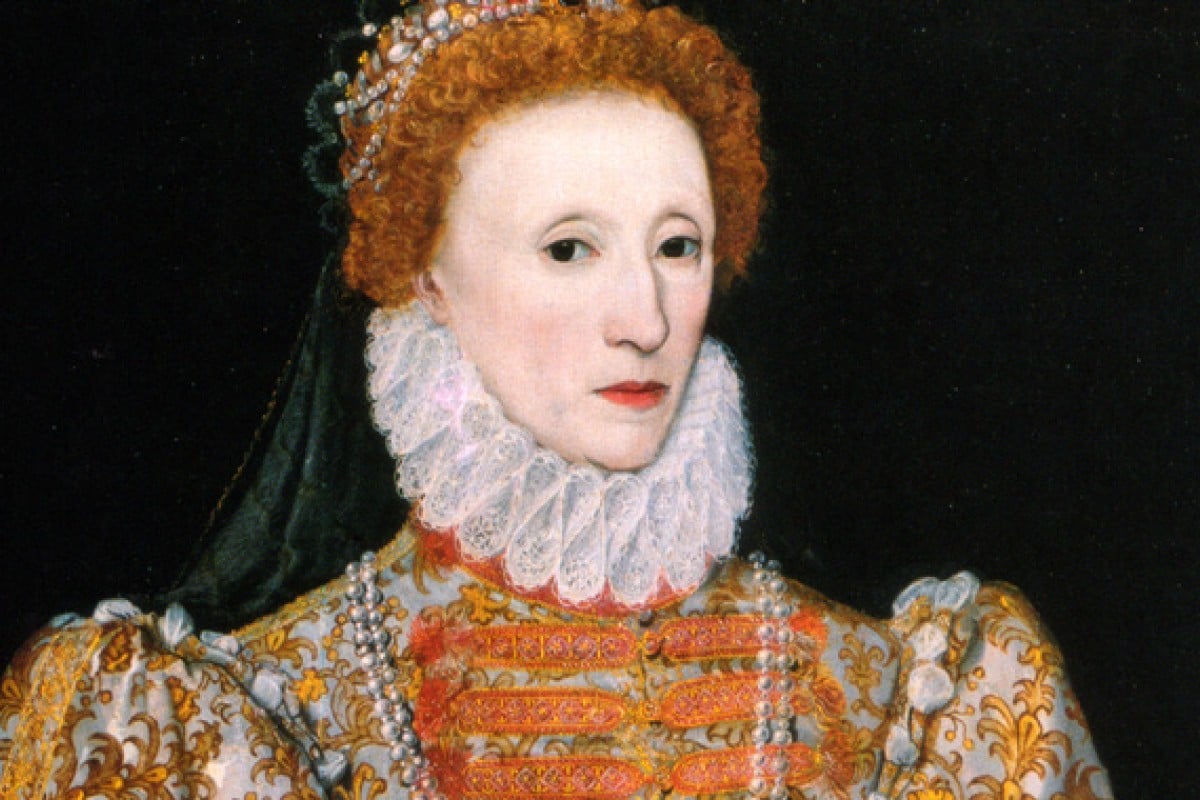
As a new scientific study claims the bones discovered on a Pacific island belonged to Amelia Earhart, we were reminded of other women throughout history worth celebrating this International Women's Day
 Queen Elizabeth I ruled as sole monarch from 1558 to 1603.
Queen Elizabeth I ruled as sole monarch from 1558 to 1603.Legendary pilot Amelia Earhart famously disappeared during an ill-fated attempt to fly around the world in 1937. Today, 80 years later - and on International Women's Day - she's been found.
A new scientific study declares that bones found on the Pacific Island of Nikumaroro in 1940 belong to Earhart "with 99% certainty", reports The Washington Post, despite a 1941 forensic analysis linking the bones to a man. For years, the bones have remained a mystery, as some speculated that Earhart died a castaway on the island after her plane crashed.
A female pioneer, and an icon of courage and perseverance, Earhart will always remain an influential figure in history and for the adventurous explorer in all of us.
As a tribute to Earhart this International Women's Day, we take a moment to remember not only her but other women throughout history who have accomplished amazing things we should never forget.
I have long since loved studying Elizabeth I, Queen of England and Ireland from 1558 to 1603. Daughter of King Henry VIII and his second wife, Anne Boleyn, Elizabeth's early life was already full of danger and intrigue because she was born the daughter of a woman who - when Elizabeth was not even three years old - was beheaded for adultery, incest and high treason; and Elizabeth was then declared illegitimate, but that didn't stop court factions from trying to use her as a pawn to gain access to power. Despite all this, she managed to not only survive, but thrive.
At 25 years old, Elizabeth was made queen after the death of her half sister, Queen Mary I. Without going into the background of the politics and religious unrest at this time, there were many who didn't wish for Elizabeth to be queen, and there were many attempts to get her married or killed. In the end, Elizabeth reigned over England and her territories for 45 years in what was later referred to as The Golden Age.
I think it's important for people to know about Elizabeth I not because she was a perfect queen - far from it. She was flawed in many ways, but in the end, she was a woman in a "man's job" at a time when no one wanted to see a woman succeed, and she did the job the best she knew how. She didn't always succeed, and by all accounts seemed like a difficult woman to be ruled by, but she undeniably left her country better than when she found it. It's what she was able to accomplish despite every obstacle thrown in her way I admire, and for those who keep banging on about what a horrible person she was, I think it's interesting how readily people are able accept the concept that a good king doesn't necessarily mean a kind man, but the same logic can't be applied to a woman.
Heidi Yeung, Web editor
For years, Empress Dowager Cixi was maligned for having allowed China to slide into corruption and anarchy. People criticised her for having spent millions and millions on parties - money that was supposed to go to the people of China and on the armies and navies of the country. However, this a view of the Empress that exists because of accounts of life inside the imperial court published by foreigners who lived in China at the time. Some of the accounts were later found to have been fake. (#FakeNews!) Cixi was blamed for all the bad things that was happening in the Middle Kingdom at the time. It was easy to blame her, because she was a woman in a position of authority, and people thought she should have been able to fix things, and simply chose not to. But newer accounts find that she was a fair ruler, and did the best she could have in the situation she was in. Cixi effectively ruled the country as regent for 47 years from 1861 to 1908 - not bad going for someone who entered the imperial palace as a concubine (so not even the main wife)!
Ginny Wong, Sub-editor
Abigail Adams, the wife of the second American president John Adams, is oft-considered a founding mother of the American revolution and budding republic. Her correspondence with her husband during sessions of the Continental Congress are sharp, intellectual, and often the more interesting and compelling side of the narrative; they are a rare and vital look at the home front during the American Revolutionary War, and unequivocal proof that she was her husband's better in most every aspect.
Edmund Ho, Reporter
I think everyone should know about the work that Marie Curie did to advance scientific knowledge. She was the first woman to win a Nobel Prize in Physics for her research into radioactivity, even though her name was not originally submitted in the nomination (only her husband and Henri Becquerel’s, another male collaborator, names were on the nomination originally). She went on to win another Nobel Prize, this time in chemistry, and continues to inspire budding scientists to this day.
Jamie Lam, Sub-editor
Unless you're a black American woman, it's unlikely you'll have heard of Madam C. J. Walker. Born Sarah Breedlove in 1867, she was the first of her parents' six children to be born into freedom; her parents and sibling had all been slaves. She is often described as the first woman to become a self-made millionaire.
While that fact is debated, she did become an incredibly successful business owner, despite the double "handicap" of her race and her gender. She developed a range of hair products for black women (at the time there were very few products for them that didn't provoke skin disorders due to the harsh ingredients used, so the existence of something especially made for them was liberating) and trained thousands of women as door-to-door sales agents. She encouraged them to become financially independent, and rewarded those who sold the most, and who gave the most to charities in their communities.
She put her money where her mouth was, too - she made huge charitable donations, and became increasingly vocal about black rights. Innovator, entrepreneur, activist and philanthropist, against the odds - and surely partly responsible for me knowing how to deal with my own hair. #thestruggleisreal
Karly Cox, Deputy editor
Original suffragette and founder of feminism, Mary Woolstonecraft was a philosopher, a human rights activist, a writer, and an educational pioneer. She argued, to much outrage at the time, that women are capable of thinking for themselves and of reason. Perhaps her most quotable axiom is, “I do not wish [women] to have power over men, but over themselves.”
She sank into relative obscurity and her name suffered much abuse after her death, as many were quick to declare her a “poor maniac.” Her legacy was tarnished for over a century, and despite there being a number of outstanding modern biographies about her life, there is no significant memorial to her anywhere.
Wollstonecraft did not come from a privileged background, and she was never formally educated, but she defied all odds and became a leader of ideas in her own time; and remains so in ours.
Rhea Mogul, Reporter
I wish people knew more about Helen Keller, who became deaf and blind as a young child but struggled to overcome her dual disability. How she managed to do that and became the first deaf-blind person to get a bachelor's degree is already incredible, now add to that her tireless efforts and devotion in campaigning for social, political and disability issues, there's little wonder why I think she should never be forgotten or neglected.
Young Wang, Senior reporter
Like Young, I too admire Helen Keller. Most people have only heard her name as a punchline to a joke, they likly don't appreciate her activism in a time that didn't socially respect women, especially one who was deaf and blind. Overcomings the frustration of losing both sight and hearing, she campaigned tirelessly on behalf of deaf and blind people. I respect and admire her greatly, and hope others will seek out her story too.
Angelina Wang, 16, Junior reporter
In primary school, I was taught all about Florence Nightingale, the British social reformer who helped care for wounded soldiers during the Crimean War and founded modern nursing. But I never learned about Mary Seacole, the Jamaican-British nurse who also helped save many lives during the Crimean War. Thankfully, Mary Seacole now features on the British school curriculum as more than just an after-thought - my little sister knows a lot more about her than I do. Both these women made extraordinary accomplishments and Mary Seacole deserves a place in history beside Florence Nightingale.